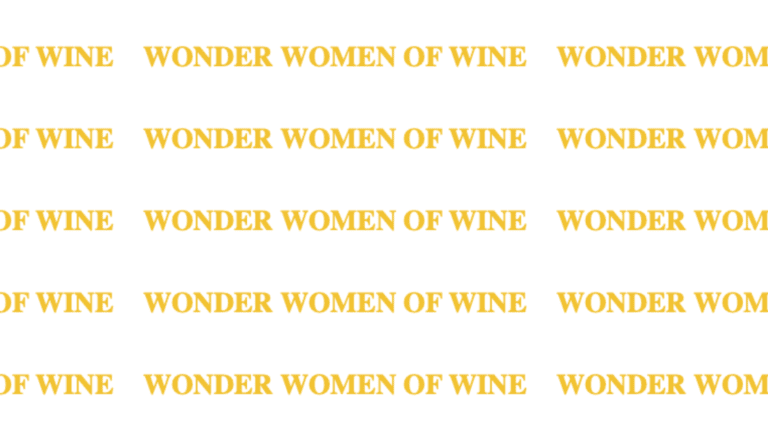
As a Sommelier, we study and train to be the epitome of hospitality. Polished glassware, table set perfectly, wine decanted; there’s a seat for anyone and if there’s wine, we’re never at a loss for words. Any talk about gender discrimination in the wine industry – the conversation stops. We simply are not discussing gender equality and without any meaningful conversation, change is not possible. This is not the epitome of hospitality. For some, the wine industry is inhospitable.
In 2019, Rania Zayyat, founder of the Wonder Women of Wine started shining a light on gender equality. Now in its second year, Rania and her non-profit organization are fostering a safe space for everyone to communicate, network and become educated about equality within the wine industry. Rania explains the inspiration behind WWOW, “There needs to be a lot more conversation about what women are experiencing…I wanted an event to bring leading women in the industry together where we could create a safe space and an environment to talk about issues and inequities not just for women but other minorities in the industry.”
According to Rania and research compiled by WWOW, the gap between the genders is dramatic. Within the Court of Masters Sommeliers America Chapter, there are 172 Master Sommeliers. 144 are men and 28 are women, approximately 16%1. In California, about 10% of wineries have female winemakers and only 4% of winery owners are women2. In 2016, at the UC Davis Department of Viticulture and Enology, an impressive 62% of the graduates were women3, yet only around 10% of head winemakers are female4. Wage discrepancy between sommeliers has seen little change since a study in 2015 showing female sommeliers reported earning an average of $7150 less than their male counterparts. Rania urges the industry for more wage transparency, “We need to feel more comfortable talking about our wages and sharing that information. There are a lot of industries where wage transparency is common, like the technology industry…It works in other industries, it needs to work in ours. “
While the conversation of gender equality has now started within the wine industry, WWOW has started to educate consumers.
Statistics reveal the substantial purchasing power of women in the market. Currently, women are responsible for 60% of wine purchases and 80% of retail wine consumption in the United States in a $34 billion industry5. Rania explains, “We are getting the public involved, making them aware of what they can be doing to advocate for more diversity and inclusion in the industry.” A community outreach initiative started in 2020 has 20-25 restaurants and retailers in Austin highlighting more female winemakers and producers on their wine lists. This outreach provides more diverse options for consumers. Rania explains, “People can vote with their dollars and know they are backing women in the industry”.
Empowering women and providing a voice to female leaders in the wine industry is important to WWOW. #FemmeFriday is interviews posted on the non-profit’s website that draw attention to positive leadership in the industry by having “conversations about women in wine, with women in wine”. Rania proudly describes the intention: “[We hope] to create a network to connect people in the industry and to give women a platform to speak out about their viewpoints on gender equality.”
The platform of inclusion is prevalent within WWOW, as men are encouraged to participate throughout the year, especially during the conference. Rania offers, “I think that men can be a part [of WWOW] by changing up their wine programs, being more conscious about their buying decisions… coming out and hearing what we have to say, donating, and sponsoring.” Her call to action is not just for men, but for everyone to recognize inequality. Rania continues, “There are a lot of culturally ingrained biases we are not aware of… I think being aware of the biases that exist is a good place to start making a conscious effort to change our dialog about who is in leadership positions. She adds, “Men hold the majority of leadership positions in this industry…there needs to be more investing and mentorship towards women. Identify women on your team, find a way to mentor and lift them up, and bring them into leadership positions.”
WWOW’s second conference in March 2020 mirrors the values and principles that Rania champions with solutions and resources, not just words. WWOW works closely with an Austin, TX-based non-profit organization called JUST. Their mission: To invest in low-income female entrepreneurs to create a more resilient community by providing trust-based loans to low-income women. The efforts of WWOW to have open dialog, community involvement, and provide financial resources from partners like JUST are creating real-world solutions to sustainable change in gender equality.
Other topics include the history of women and minorities in wine, sexual violence/power abuse in the industry, and health, wellness and overconsumption in the industry.
Rania firmly believes these topics and resources are applicable to other industries. Rania provides, “There is a lack of insurance and financial ability to take care of oneself.” She continues, “One of the organizations we are working with “I’ll Have What She’s Having”, is a group of doctors and hospitality professionals that provide funding for women in hospitality to get check-ups and medication.”
The conference culminates with the keynote panel on shifting ideas in feminism. The panel will offer different perspectives on the trend of public awareness. Finally, WWOW will award three scholarships for the 2020 Conference:
1. Wonder Women of Wine Attendance Scholarship
2. Entrepreneur Scholarship funded by the Wine and Food Foundation of Texas
3. Educational Development Scholarship funded by Les Dames d’Escoffier: Austin Chapter
Rania Zayyat and her staff volunteer their time to organize and keep the Wonder Women of Wine active and relevant. The efforts of WWOW to generate conversation and resources to change the current state of gender equality are meaningless if we as a community do not defend our colleagues. She explains, “If you hear someone say something negative about a woman, say something. These aren’t just women’s issues, it’s everyone’s issues. We need to be more comfortable speaking up.”
Whether you are a consumer or sommelier, open a great bottle of wine and start talking about gender equality. Great wine inspires great conversation. Ultimately, the goal is a place for everyone at the table, equally.
CampestreMAG fully supports the non-profit organization Wonder Women of Wine and urges its readers from San Diego, CA and Baja Mexico to contact WWOW for further ways to continue the conversation in your area.

